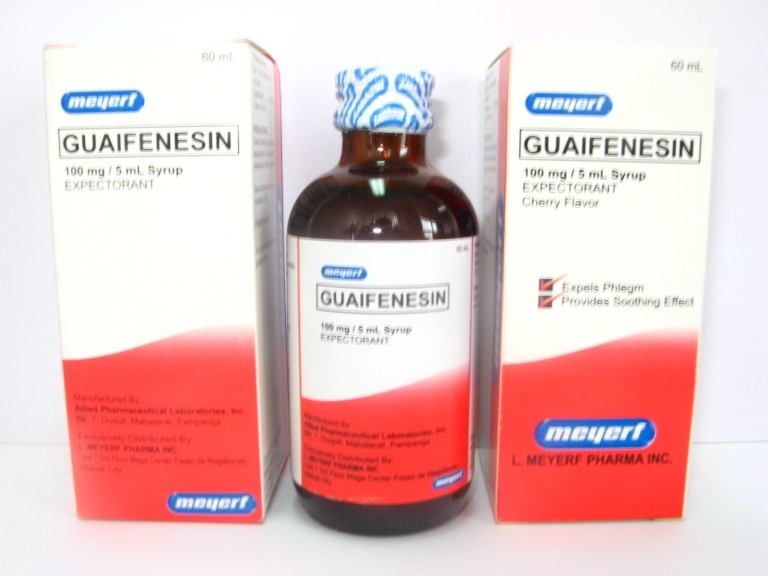
GUAIFENESIN Expectorant
& Antihistaminic
DIPHENHYDRAMINE HcI
TUSSIN
Syrup
COMPOSITION:
Each 5 ml syrup contains:
Guaifenesin 50 ma
Diphenhydramine Hel 7 mg
PROPERTIES:
The syrup contains Gual’e”es;n; an expectorant drug and Diphenhydramine; an antihistaminie drug. Guaifenesin is an expectorant, that temporary relieves cough associated with respiratory tract infections and related conditions such as sinusitis, pharyngitis, bronchitis and asthma. When these conditions are
complicated by tenacious mucus and/or mucus plugs and congestion. The drug is effective in productive as well as nonprOductive cough, but it is of particular value in dry nonproductive cough that tends to injure the mucus membranes of
the air passages. Diphenhydramine is a potent antlhistaminic drug that binds nonselectively to central and peripheral H, receptors, and it is used to control coughs caused by colds or allergy.
INDICATIONS:
Symptomatic treatment of productive and non-productive cough, predominant at night. It is not recommended to administer an antitussive concomitantly with an expectorant.
DOSAGE:
Symptomatic treatment should be used at the time of cough and only for few days.
Adults: 1 tablespoonful may be repeated, If necessary. every 4 hours, not exceeding 6 tablespoonfuls per day.
Children 10- 1S years: 1 teaspoonful 2·3 times daily.
Children 2 Yz – 10 years: 1 toaspoonful 1·2 times daily.
Dosages at night time are privileged to overcome the sodative effect
of diphenhydramine HCI.
SIDE EFFECTS:
Sedation. anticholinergic effects such as dryness of mucous membranes, constipation, accommodation disorders, mydriasis, palpitation and risk of urine retention, orthostatic hypotension, equilibrium disturbances, vertigo, memory and concentration disordors which are more frequent in elderly patients, disorders in coordination, trembling, mental confusion, hallucination, agitation, nervousness & insomnia. Hypersensitivity roactions such as erythema, eczema, pruritus, urticaria and edema. Hematologic effects such as leucopenia, neutropenia, thrombocytopenia and hemolytic
anemia.
CONTRAINOICATIONS:
HypersensitiVity to any of the components. Pregnancy and lactation.
DRUG INTERACTIONS:
Alcohol may Increase the sedative effect of diphenhydramine HC l. Concomitant administration of other depressors of CNS (sedative antidepressants, barbiturates, benzodiazepines, clonidine, hypnotics, morphine derivatives, neuroleptics. anxiolytics other than benzodiazepines, baclofen, thalidomide) may increase the depressive effect on CNS. Concomitant administration of atropine or atropine- like substances may increase undesirable side effects such are urine retention, constipation and dry mouth.
PRECAUTIONS:
It is not recommended to use an expectorant or mucolytic with and antitussive. Diphenhydramine HCI should be used with caution in renal or hepatic insufficiency and elderly patients which are more sensitive to orthostatic hypotension, vertigo and sedation, or suffer from chronic constipation or prostalic hypertrophy. Cases of children suffering from bronchial asthma or gastroesophageal reflux should be treated before administering an antitussive containing diphenhydramine. Alcohols should be avoided during treatment.
Avoid driving cars or using machinery.
PACKING:
A bottle containing 60. 100 or 120 ml.
STORAGE:
Keep at a temperature (15-30°C).
Keop out of roach of children.
Produced by :
PHARAONIA PHARMACEUTICALS
.nnnJl1\11J1.lU PHARO PHARMA – For M.O.H & P.
